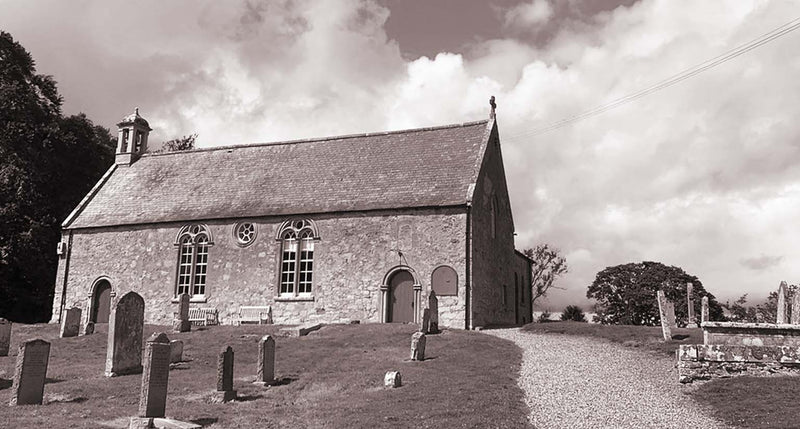The surname Rutherford comes from territorial origins, taken from the lands of Rutherford in the parish of Maxton in Roxburghshire. The name is of an ancient and once powerful Border family. The meaning and origin of the place name is simply from the old English hrythera ford, which means a ford for cattle. The names […]
Tag Archives: Rutherford Clan History
The surname Rutherford comes from territorial origins, taken from the lands of Rutherford in the parish of Maxton in Roxburghshire. The name is of an ancient and once powerful Border family. The meaning and origin of the place name is simply from the old English hrythera ford, which means a ford for cattle. The names Gregory and Nicolas de Rutherford, or Rutheford, were recorded for during the reigns of both King William I and his son, King Alexander II. A number of other people with this surname appear in the records during the time of Alexander III, perhaps most notably a lord, Sir Richard, Lord of Rotherford. Around the start of the 13th century, a charter by Henry de Grahame was witnessed by William de Rwithirford, a cleric, and fifteen years later, around 1215, a charter by Philip de Valoniis was witnessed by Huwe de Ruwerfort. A quitclaim by Malcolm de Constabletun and his wife, Alicia was witnessed by Nicolas de Rotherford. It was in regards to, roughly, 120 acres of the lands of Edulfistun (now Eddleston) going to the Church of Glasgow in 1260. Nicolas appears another several times in the Kelso chartulary as a charter witness betweeen the years 1270 and 1297. He is also probably the same person as the knight, Nicholas de Rothirford who pledged allegiance to England’s Edward I by signing the Ragman Roll in 1296. Others of the same surname who rendered homage in the same year include Margarete la fielle Nicol de Rotherforde, an Aymer de Rotherford of the county of Roxburghe, and Mestre William de Rotherforde, persone of the church of Lillesclyve. Aymer’s seal on the roll bears an eagle displayed, and his name as S’ Aimeri de Rotherford. William’s seal bears the head of a wild bull, with a human head inbetween, and his name as S’ Will’mi de Rothirford. In 1306, Eva and Margery de Rotherforde, granddaughters and heirs of “Monsire Nichol de Rotherforde chivaler Descose” petitioned for right of the annual rent of the mills of Doddingestone in Northumberland. A charter by Sirilius Saddeler was witnessed, circa 1330, by Richard de Rotherforf, and William de Rotherford, dominus ejusdem, appears on the same record some twenty-four years later, in 1354. An inquisition held in Roxburgh, in 1361, saw William of Rotherford and Nicholas of Rothersford recorded as jurors. In 1398, the knight, Sir Richard of Rotherfurde was recorded as one of the ‘borrowis’ for Archibald, 3rd Earl of Douglas’ bounds on the middle march, and in Aberdeen, in 1411, Richard Ritherford was admitted burgess of the city. A charter by the 4th Earl of Douglas, also an Archibald, was witnessed by George de Rutherfurde sometime around 1413. The 1451 truce between Scotland and England saw Nicholas Ruthyrfurde and James Ruthyrfurd as two of the thirty Scottish conservators of the pact. Samuel Rutherford, whose book, Examen Arminianismi, published in 1668, in Utrecht, saw his name changed to Rhetorfortis, and then again by his continental contemporaries to Retofortis. A number of Scots settled in Prussia in 1644, and among them the name Rutherford appears as Ritterfart. The scientist who discovered nitrogen in 1772 was Daniel Rutherford, who was born in Edinburgh on the 3rd November, 1749, and died on the 15th November, 1819, aged 70. Rutherford, the uncle of Sir Walter Scott, attended the University of Edinburgh where he was also a professor of botany and was a keeper of the Royal Botanic Gardens in the city.

